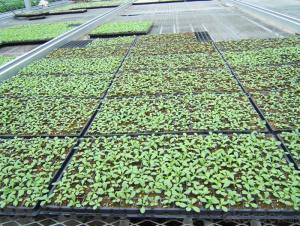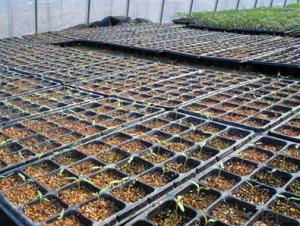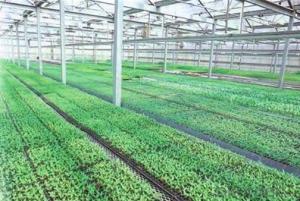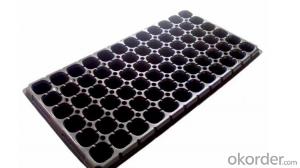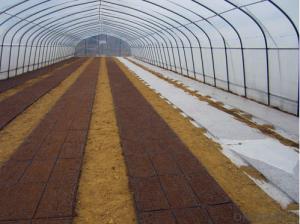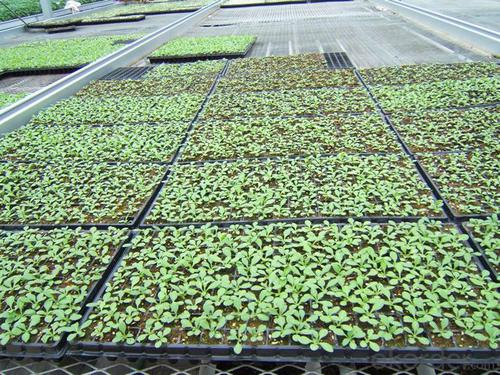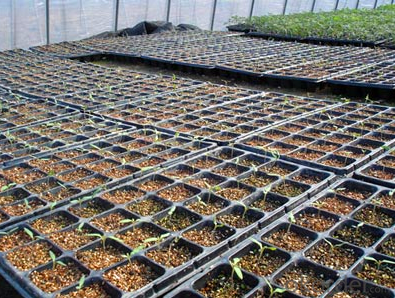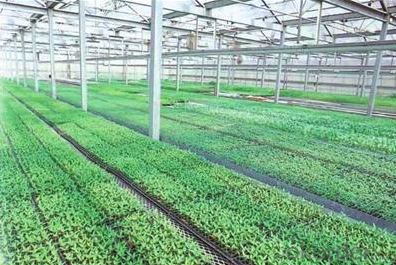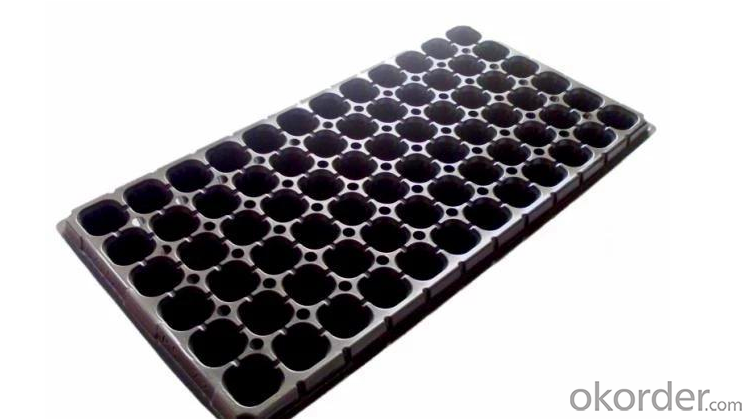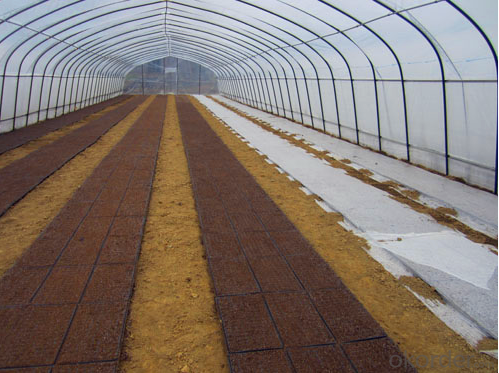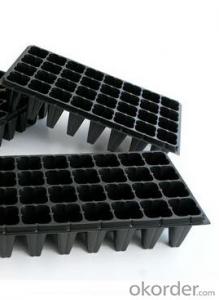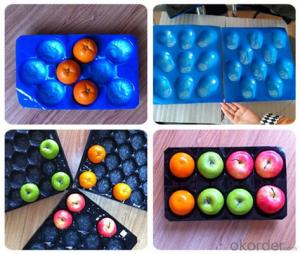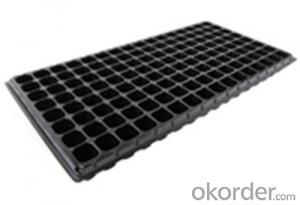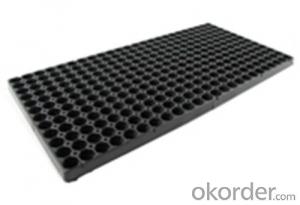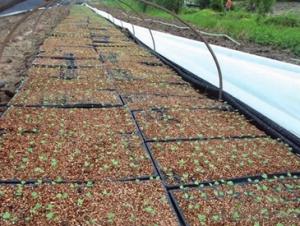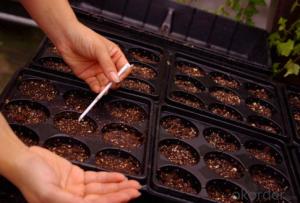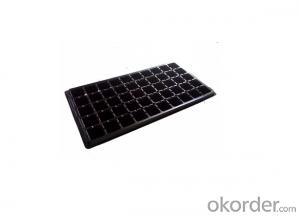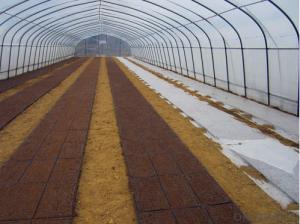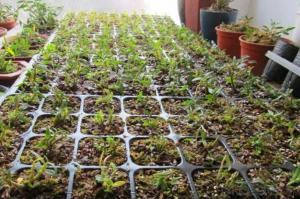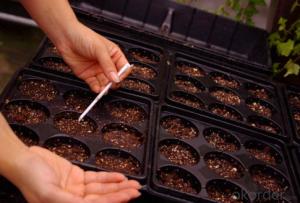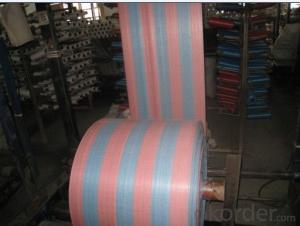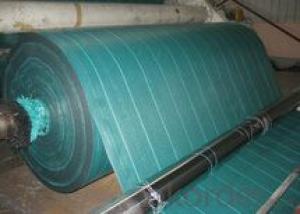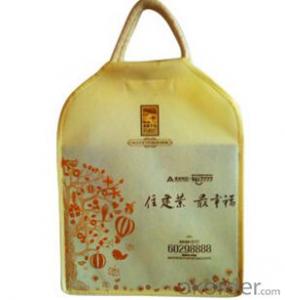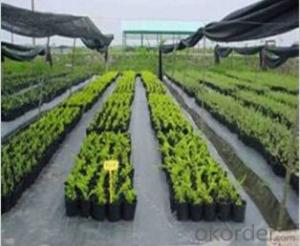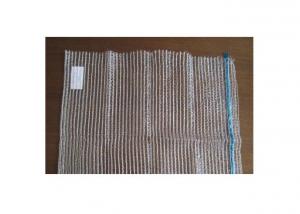Black Plastic Nursery Plug Trays with Flat Covers
- Loading Port:
- China main port
- Payment Terms:
- TT OR LC
- Min Order Qty:
- 3000 pc
- Supply Capability:
- 2000000 pc/month
OKorder Service Pledge
OKorder Financial Service
You Might Also Like
Specification of Plug Trays HIPS Made Plastic Plug Tray for Greenhouse (Growing and Seedling):
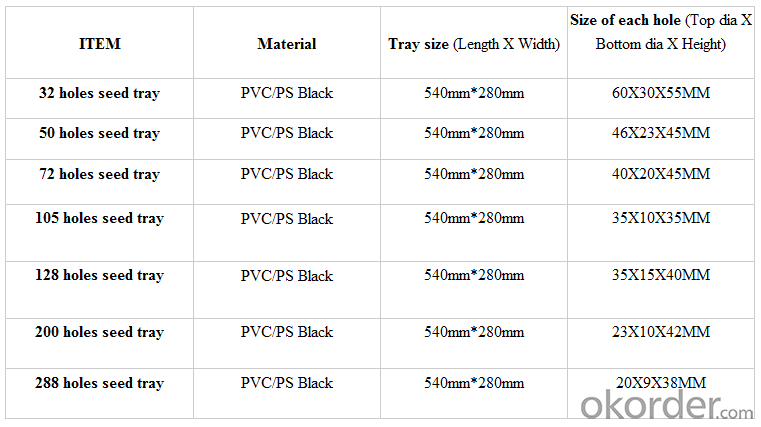
Features of Plug Trays HIPS Made Plastic Plug Tray for Greenhouse (Growing and Seedling):
· Material: HIPS
· Thickness: 0.5mm-1.5mm, Standard:1mm
· Weight: 80g(±5)g-230g(±5)g, Standard weight:155g(±5)g
· Size: length:490mm-540mm, width:190mm-345mm,depth:25mm-150mm
· Standard:540mmX280mm
· Cell count: 18-512
· Package: In Carton
· Warrenty: 8-10 times
Packaging & Delivery
Packing Detail: export standard carton or large bags
Delivery time: 4 million per momth after receipt of deposit
Advantage:
Waterproof, UV-resistant, extrusion-resistant
Easy carry for young seeding plant and grow
Service:
1. Quick, efficient and professional response within 24 hours, 14 hours online services
2. 10 years manufacturing and exporting experience in agriculture field.
3. Technical support and solution by chief engineer.
4. Strict quality control system & team, high reputation in the market.
5. Full range of irrigation products for choice
6. OEM/ODM services
7. Accept sample order before Mass Order
Picture of Plug Trays HIPS Made Plastic Plug Tray for Greenhouse (Growing and Seedling):
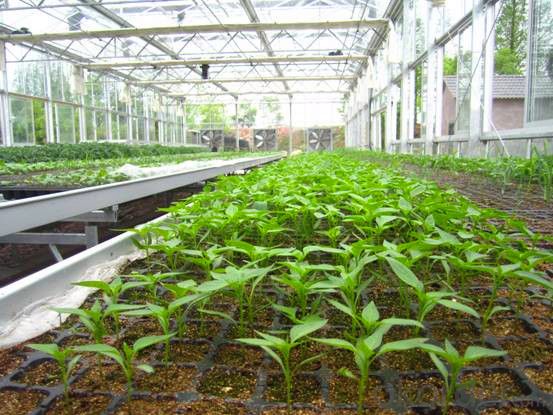
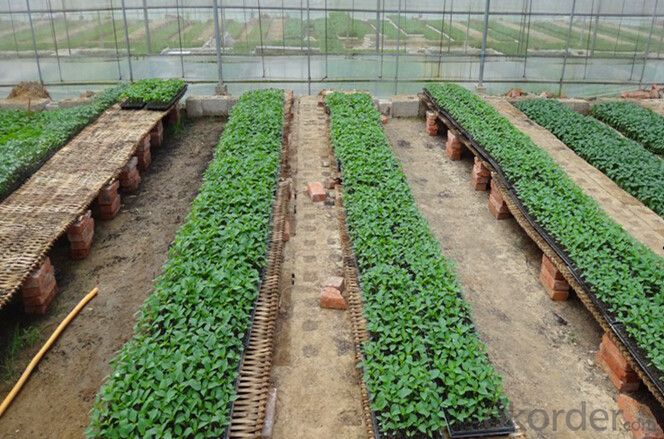
FAQ of Plug Trays HIPS Made Plastic Plug Tray for Greenhouse (Growing and Seedling):
Q: 1.How long is the production time?
A: Usually one to two weeks.
Q: 2.How is the seed tray being packaged?
A: They can be packaged in carton or pallets. Carton size is 1375px*725px*1250px.
Q:3.How many times can the seed tray be used?
A: Under the same environment, it is decided by the thickness. Usually 0.6mm thickness can be used for 1 or 2 times.
1.0 thickness can be used for 3-4 times. 1.5 thickness can be used for 8-10 times.
- Q: Are agricultural plastic products resistant to chemical exposure?
- Yes, agricultural plastic products are generally resistant to chemical exposure. They are designed to withstand exposure to various chemicals commonly used in agriculture, such as fertilizers, pesticides, and herbicides. This resistance helps protect the products from degradation or damage, ensuring their durability and longevity in agricultural settings.
- Q: What are some ground cover options for compacted soil?
- Some ground cover options for compacted soil include creeping thyme, creeping juniper, periwinkle, and creeping phlox. These plants are known for their ability to tolerate and thrive in compacted soil conditions.
- Q: Can nursery trays be customized?
- Yes, nursery trays can be customized. They can be made in various sizes, shapes, and colors to meet specific needs and preferences. Additionally, they can also be customized with logos, labels, or markings for branding or identification purposes.
- Q: Can agricultural plastic be used for soil solarization?
- Yes, agricultural plastic can be used for soil solarization. Soil solarization is a technique used to control pests, diseases, and weeds in the soil by covering it with a clear plastic sheet to trap solar radiation and raise the temperature. Agricultural plastic is often used for this purpose as it efficiently traps heat and allows the soil to reach high temperatures, effectively sterilizing the soil and eliminating many harmful organisms.
- Q: Are agricultural plastic products UV resistant?
- Yes, agricultural plastic products are often made with UV-resistant materials to protect them from the damaging effects of sunlight.
- Q: What practices do farmers adopt to make their use of agricultural plastics eco-friendly?
- <p>Farmers ensure environmentally friendly use of agricultural plastic products through several practices. They opt for biodegradable plastics that break down naturally over time. They also use precision agriculture techniques to minimize waste and maximize efficiency. Farmers often recycle used plastics, either by repurposing them on the farm or by participating in community recycling programs. Some also use cover crops and no-till practices to reduce the need for plastic mulch. Additionally, they monitor and adhere to local regulations regarding the use and disposal of plastics to prevent environmental harm.</p>
- Q: Can agricultural plastic products be used for vertical farming?
- Yes, agricultural plastic products can be used for vertical farming. Plastic materials such as polyethylene and polypropylene are commonly used in the construction of vertical farming systems. These materials are lightweight, durable, and resistant to weathering, making them suitable for vertical farming structures. Additionally, agricultural plastic products can be customized to create specialized vertical farming systems that optimize space utilization, light distribution, and water management, enhancing the efficiency of the farming process.
- Q: Are agricultural plastic products used in sustainable agriculture practices?
- Yes, agricultural plastic products can be used in sustainable agriculture practices when managed properly. They can help increase crop yields, conserve water, and reduce the use of pesticides and fertilizers. However, it is important to ensure proper disposal and recycling of these products to minimize their environmental impact.
- Q: What are the different types of ground cover plants?
- There are various types of ground cover plants, including creeping thyme, ajuga, vinca minor, Japanese pachysandra, sedum, and dwarf mondo grass.
- Q: Describe how farmers utilize agricultural plastic seedbed mats to enhance soil quality.
- <p>Farmers use agricultural plastic seedbed mats to improve soil quality by creating a controlled environment for seed germination and early plant growth. These mats help retain moisture, which is crucial for seed hydration and germination, and they can also regulate soil temperature, promoting even growth. The mats reduce weed growth, which competes with crops for nutrients, and protect the soil from erosion. Additionally, they can improve soil structure by allowing air and water to penetrate the soil, facilitating better root development. Over time, as the plants grow and the mats degrade, they can contribute organic matter to the soil, enhancing its fertility and overall health.</p>
Send your message to us
Black Plastic Nursery Plug Trays with Flat Covers
- Loading Port:
- China main port
- Payment Terms:
- TT OR LC
- Min Order Qty:
- 3000 pc
- Supply Capability:
- 2000000 pc/month
OKorder Service Pledge
OKorder Financial Service
Similar products
Hot products
Hot Searches
Related keywords
